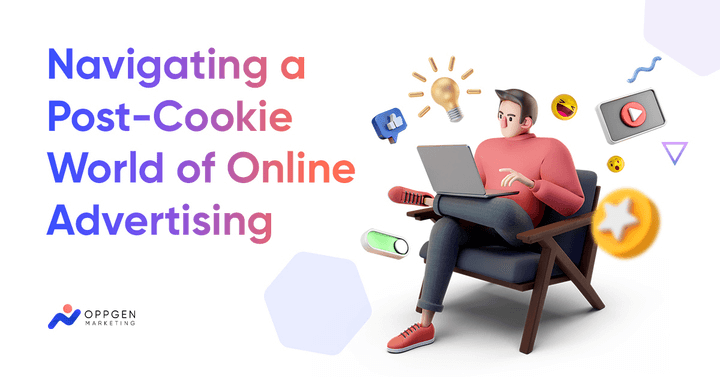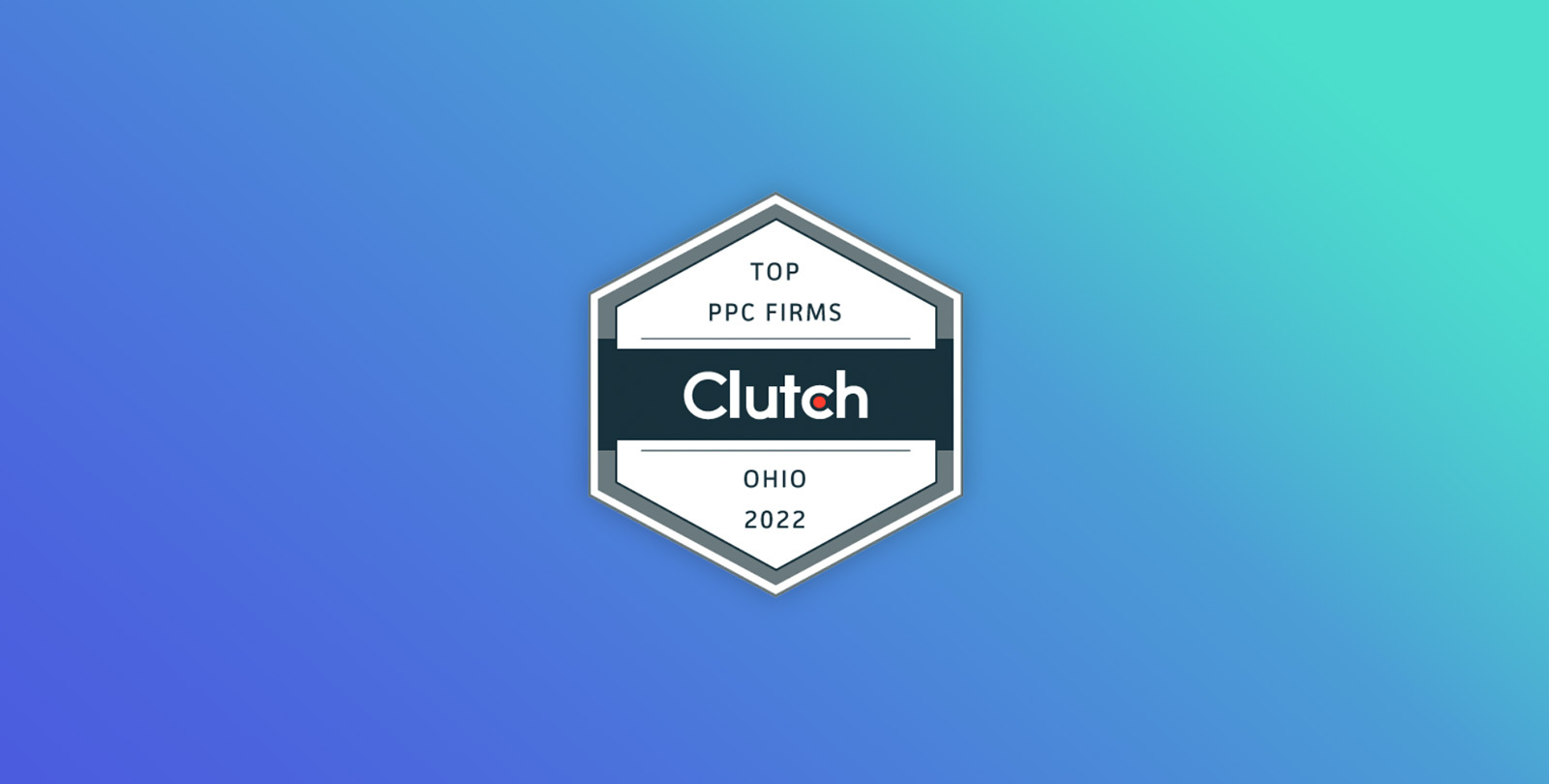By OppGen
Partnering with the right PPC agency can be a game-changer for businesses that want to maximize their digital advertising ROI.
This comprehensive guide covers everything you need to know about how to evaluate, select, and work with a top PPC management partner.
We’ll explore the key benefits of hiring an agency, their core services, and how to vet candidates during the selection process.
In addition, you will find out about:
- Typical PPC agency pricing models
- Interview questions
- Telltale signs that it is time to switch
- And how to transfer accounts easily to a new agency
By the end, you’ll have a thorough understanding of what to look for in a PPC agency and how to find the right fit for your business.
Table of Contents:
- What is PPC?
- How PPC Campaigns Work
- Best PPC Platform to Consider
- Pros/Cons of PPC vs Other Digital Marketing Forms
- Benefits of Hiring a PPC Agency
- PPC Agency Services Explained
- Vetting and Selecting the Right PPC Agency
- PPC Pricing Models
- When to Switch PPC Agencies
- Transitioning to a New PPC Agency
What is PPC?
Pay-Per-Click (PPC) advertising is a model of digital marketing where advertisers pay a fee each time one of their ads is clicked on.
Essentially, it’s a way to buy visits to your website, as opposed to earning those visits organically through other means like Search Engine Optimization (SEO).
Businesses (like yours) can use PPC to show their ads to people who are searching for products and services you offer.
By tailoring your ads and choosing keywords closely related to your business, you can drive targeted traffic to your site with your PPC campaigns.
PPC is one of the most effective forms of digital marketing, offering businesses unique benefits like:
- Immediate exposure
- Precise targeting
- Measurable results
- Flexibility
- Increased visibility
PPC is one of the most effective and immediate forms of digital marketing available. This is why businesses across industries invest more in PPC every year.
How PPC Campaigns Work
On the surface, PPC campaigns appear to simply involve setting up some ads and waiting for clicks to roll in. But behind the scenes, there’s a complex and strategic process that makes PPC work to produce profitable ROI and revenue growth. Here are some key aspects of how PPC campaigns function:
Keyword Auctions
Keywords are at the core of PPC…
As a user searches for a given term, like “email marketing software,” an instant auction takes place for that keyword among advertisers bidding on it.
Factors like your bid amount and Quality Score determine where your ad will rank and how much you will pay per click.
Quality Score
This metric looks at the overall quality and relevance of your ads, keywords, and landing pages.
Ads with higher Quality Scores get preferential treatment on PPC platforms. Keeping your score high (on a 1–10 scale) leads to lower costs and better ad positions.
Ad Rank Formula
Your bid multiplied by your Quality Score = Ad Rank.
This formula determines where your ads appear. To rank higher, focus on bidding higher on keywords that matter and improving the overall Quality Score through optimization.
Landing Pages
Once a user clicks your ad, they should arrive at a landing page that is relevant, easy to navigate, and encourages them to convert. Align your landing pages with ad messaging for a personalized and contextualized experience to boost conversion rates.
Bidding and Budgets
Set daily budgets and use bidding strategies like enhanced CPC to maximize conversions within budget.
The bids should be adjusted based on the performance data.
To gain insights, you should set up conversion tracking.
Advanced Features
Take advantage of advanced features like:
- Location targeting
- Demographic segmentation
- Customer match
- Responsive search ads
These can help refine your targeting.
Best PPC Platforms to Consider
The major players in PPC each offer unique advantages.
The platforms you choose to use are determined by the goals you have and the audience you intend to reach.
Google Ads
With a whopping 83.49% search engine market share, Google Ads is the 800-pound gorilla.
Its massive reach, advanced features, and detailed targeting make it appealing for both B2C and B2B.
Google Shopping ads are ideal for e-commerce brands looking to get their products in front of people ready to buy. YouTube ads also offer engaging video ad options.
Bing Ads
While smaller than Google, Bing still owns over 9.19% of search traffic.
Bing Ads can be a cost-efficient option, with less competition on keywords giving better ad positions and lower costs-per-click (CPCs).
The Microsoft Audience Network also allows Bing ads to show across additional sites.
Facebook Ads (Meta Ads)
As the top social media platform, Facebook has over 3.65 billion monthly active users—a marketer’s dream.
Facebook’s detailed user data gives you the ability to serve highly targeted ads based on demographics, interests, behaviors, and more. From image and video ads to Stories and Messenger ads––you have a variety of options for engaging users.
LinkedIn Ads
For B2B marketers, LinkedIn’s 500+ million professionals make it a prime platform.
Tailor ads by:
- Job role
- Industry
- Interests
- Business goals for your targeted audience
Partner with an agency to tap into their LinkedIn campaign management expertise.
Pros/Cons of PPC vs Other Digital Marketing Forms
PPC has unique advantages that make it an essential component of every digital marketing strategy.
Search Engine Optimization (SEO)
SEO has key benefits like long-term organic growth and high-trust content. But it can take months to see results. PPC offers a faster complement for leads. Use both in tandem.
Social Media Marketing
Organic social reaches highly engaged audiences, but paid social (social media ads) expands reach. Combine organic content with paid ads for ideal social media ROI.
Email Marketing
Sending targeted emails to subscribers you already have offers outstanding ROI.
Yet acquiring new subscribers can be a challenge. PPC can help drive new leads and subscriber sign-ups.
The common thread is that today’s savvy digital marketers use both PPC and organic methods like SEO, social media, and email together for short and long-term success.
The immediacy and conversion-focused power of PPC, when balanced with organic growth channels, can create a comprehensive strategy that maximizes results.
Benefits of Hiring a PPC Agency
With a solid understanding of what PPC is and how it works in place, engaging the services of a PPC agency can provide immense value.
These agencies and consultants have the expertise, tools, and experience to ensure your PPC budgets are being used efficiently and effectively.
Access to Advanced Skill Sets and Insights
Don’t underestimate the skill and effort required to manage successful PPC campaigns.
The most qualified PPC experts are at agencies that focus exclusively on paid search.
They live and breathe PPC, staying on top of every new feature, algorithm update, and innovation within the major advertising platforms.
A PPC marketing agency can identify optimization opportunities that may seem counterintuitive but have data to support them.
They are experts that can provide insights you might never find on your own. Their strategic vision for structuring campaigns for scale is invaluable.
Proven Methodologies and Best Practices
Agencies develop time-tested processes for managing campaigns.
With an independent, unbiased approach, they can provide a fresh look at your PPC efforts using proven methodologies. This prevents you from stagnating or relying on ineffective strategies that may have become comfortable.
Tools and Technology
Many agencies leverage proprietary technologies and tools for research, tracking, reporting, and automation that would be costly for an individual business to develop or license.
This gives them an advantage in efficiently managing large-scale PPC efforts and extracting performance insights.
Added Human Resources
No matter the sophistication of tools, PPC still requires manual management and optimization from experts.
Agencies have teams wholly dedicated to campaign management, allowing more focus than an in-house resource stretched across many marketing channels.
Speed and Scalability
Getting PPC campaigns launched and ramped up quickly can be challenging. Especially if you’re starting from scratch.
An agency can accelerate results through increased budget and testing velocity. Their experience also allows them to seamlessly scale spend across accounts.
Customer Acquisition Cost (CAC) Reduction
The combination of increased conversions and continuous optimization that agencies bring means your cost to acquire customers (CAC) through PPC will steadily decline.
As scale increases, they leverage experience to further reduce CAC.
With these benefits in mind, partnering with the right PPC agency can transform your paid search campaigns, unlocking significant growth and ROI.
Identifying an agency that matches your needs takes research.
The next sections provide tips for choosing the best PPC company.
PPC Agency Services Explained
A successful PPC agency provides a wide suite of services that cover all aspects of campaign management. Understanding these core service offerings will help you assess potential agency candidates.
Campaign Setup and Structuring
The foundational work of establishing accounts, building campaign architecture, configuring tracking, and importing data is necessary to launch campaigns properly.
Keyword Research
Evaluating search behavior to identify high-value keywords and assign them to relevant ad groups. Ongoing analysis provides insights.
Ad Copywriting
Writing compelling ad text entices clicks and conveys your brand.
Landing Page Optimization
Designing and optimizing landing pages to align with ads and convert visitors into leads and sales.
Bid Management
Setting bids and applying strategies like enhanced CPC and target Return on Advertising Spend (ROAS) bidding to hit KPIs.
Audience Targeting
Leveraging capabilities like customer match and lookalike audiences to reach your best customers.
Performance Analysis
In-depth analysis of metrics and trends to gain actionable insights.
Tracking conversions and attributing them to PPC is essential.
Reporting and Insights
Providing regular reports and insights to clients that summarize performance and opportunities.
Optimization
Continuous testing and refinement of ads, keywords, landing pages, bidding strategies, and more to improve campaign efficiency.
Remarketing
Setting up remarketing campaigns to engage visitors after they leave your website. This brings users back into the sales funnel.
A/B Testing
Running split tests of ad copy, landing pages, offers, and other elements to determine which variants perform best.
Asset Creation
Designing compelling ads, banners, and other creative assets that align with campaign goals.
Account Structure
Organizing campaigns, ad groups, and keywords logically to allow for segmentation, testing, and optimization.
Budgeting and Billing
Managing monthly budgets across accounts and providing transparent billing and invoicing.
Communication
Clear communication of insights, recommendations, and strategy. Quick responses to questions and concerns.
Pixel Implementation
Installing conversion tracking and remarketing pixels across your website and sales funnels.
Feed Management
Setting up and optimizing product and inventory feeds for shopping campaigns.
Technical Optimization
Ensuring ads are displayed correctly across devices and troubleshooting issues.
A full-service PPC agency becomes an extension of your marketing team.
They can provide the expertise and bandwidth to implement and manage campaigns at scale. They save time, accelerate growth, and provide a definitive ROI, but choosing the right agency is critical.
Vetting and Selecting the Right PPC Agency
PPC agencies are not created equal…
Choosing the right partner to steward your paid search campaigns takes thoughtful research and evaluation. Here are key factors to consider:
Proven Success and Case Studies
A reputable agency will have a strong portfolio of client success stories and examples of achieved results. Look for proof of expertise in your specific industry.
Strategic Experience
Ask candidates to explain their strategic approach. Assess their knowledge of the latest platform capabilities and trends. Make sure they are thinking long-term.
Technical Capabilities
There should be a clear understanding of how to track conversions, optimize landing pages, manage large budgets, and implement other PPC fundamentals.
Communication Skills
Clear, proactive communication is a must. Make sure they’ll provide regular reporting and insights, along with quick responses.
Client Retention and Reviews
High client retention and positive reviews show an agency provides results and value. Watch for red flags like high turnover.
No Cookie-Cutter Solutions
Avoid agencies that push one-size-fits-all programs. Your strategy should align with specific objectives.
Cultural Fit
Make sure your agency aligns culturally with shared values and collaboration models. You want a trusted partner relationship.
Analyze Pricing and Contracts
Compare pricing models and look for flexible contracts rather than rigid, long-term lock-ins.
Trusting your gut during the vetting process goes a long way.
PPC Agency Pricing Models
PPC agencies use several types of pricing models.
Being aware of the pros and cons of each helps determine the best fit.
Percentage of Ad Spend
PPC agency charges a monthly fee that is a percentage (often 10–20%) of the client’s total ad spend.
- Pros: Aligns incentives (agency benefits from optimized spend). Easy to budget.
- Cons: Potentially expensive as spend scales. Does not account for labor time.
Fixed Monthly Fee
A pre-set monthly fee based on the estimated workload and labor time required.
- Pros: Predictable, consistent pricing. Accounts for labor.
- Cons: Poor alignment of incentives if spend varies. Can underestimate or overestimate workload.
Hourly Rate Model
PPC agency charges for actual hours worked based on hourly rates for different team members.
- Pros: Accounts for actual time invested by the agency. Strong incentive alignment.
- Cons: Unpredictable monthly costs. Need visibility into work logs.
Performance-Based Pricing
Fees tie directly to performance KPIs like conversions, sales revenue, or ROI.
- Pros: Places focus on results. Aligns agency success with your goals.
- Cons: KPIs need to be realistic and measurable. Requires transparency.
Hybrid Model
Combines two or more models, like a fixed fee + percentage of spend or performance bonus.
- Pros: Balances predictability with incentive alignment. Share the upsides of success.
- Cons: Can be complex to calculate. Needs a clear definition.
The best fee structure provides incentive alignment while accounting for workload and reflecting a fair value exchange. Avoid rigidity; be open to optimizing the model.
When to Switch PPC Agencies
Occasionally, the need arises to switch PPC management to a new agency.
But how do you know it’s the right time?
Consistently Missing KPIs
If campaigns are consistently falling short of core metrics and goals with no improvement, it indicates underlying issues.
Lack of Accountability and Communication
Unresponsiveness to questions or concerns, lack of proactive optimization, and sparse reporting point to disengagement.
Churn on Your Account
High turnover of your account manager or team suggests the agency may not be investing properly in talent.
No Value Added
If nothing seems to be evolving except your monthly bill, your needs may be beyond your current partner’s capabilities.
Outdated Strategies
As Google and other platforms add features, strategies need to evolve.
Stagnant agencies get stuck in their ways. The best ones will try new strategies.
Misalignment on Goals
Ensure your agency understands your business objectives.
Conflicting priorities breed poor results.
Lack of Transparency
Your agency should provide clear visibility into your accounts and how they optimize ad spend.
Steadily Increasing Costs with No Value
If costs climb higher with no added value, it may be time for a change. Stay aligned on budgets.
If these issues emerge, have an open dialogue with your PPC agency first. Outline concerns and see if alignment can improve. If not, changing partners may be the best path forward.
Transitioning to a New PPC Agency
PPC brings unique advantages that make it an essential component of a complete digital marketing strategy.
Should you decide to switch PPC marketing agencies, follow these best practices to ensure a smooth transition.
Audit Existing Accounts
Thoroughly review existing campaigns, ad groups, and keywords to gain insights before migrating.
Export Performance Data
Extract analytics and campaign data to provide the new PPC agency complete visibility into past performance.
Set Proper Account Access
Remove old PPC agency access while granting the new agency the proper permissions to manage accounts.
Develop Transition Plan and Timeline
Define all key milestones and dates upfront to prevent gaps or downtime in management.
Communicate Early and Often
Keep both old and new PPC agencies informed during all stages. Clear communication avoids problems.
Execute Parallel Campaigns
Run new agency campaigns alongside old agency efforts for an initial testing period. Learn and refine.
Monitor Campaigns Closely
Observe the new PPC agency’s campaigns daily to ensure proper setup, spending levels, and results during the transition period. Provide feedback.
Reconcile Billing
Confirm the final invoices from the old PPC marketing agency and start with clean billing with the new partner.
Ideally, transitions should allow for an initial ramp-up and testing period where the new PPC agency sets up initial campaigns and gains insights while old efforts continue running. This overlap lets you monitor performance closely. Once ready, the switchover can be made relatively seamlessly.
Conclusion
Managing profitable, scalable PPC campaigns requires expertise and constant optimization.
While an in-house resource may handle basic PPC tasks, the multifaceted capabilities of an accomplished PPC marketing agency are transformative.
The insights in this guide offer a comprehensive overview of the value professional PPC agencies provide, from illuminating how PPC works to evaluating PPC agency services and tips for choosing a partner poised to deliver success.
With the right PPC agency, paid campaigns can transform from a mere marketing channel into a growth engine, delivering tangible ROI through precision-targeted engagement. Treat your agency search as an investment, undertake due diligence, and the returns will follow.
Contact us today to learn how our expert team can help take your PPC campaigns to new heights!





